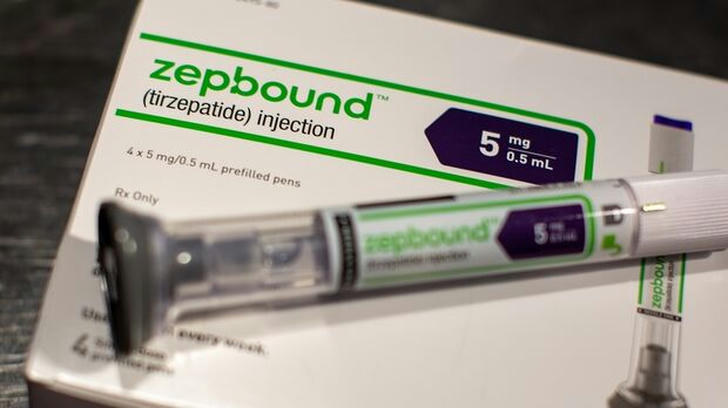💊 Zepbound Price Drops Sharply — A New Era for Affordable Weight-Loss Treatment
Eli Lilly has announced a major price cut for Zepbound, reducing its monthly self-pay cost from over $1,000 to just $299. As part of a new national deal to make GLP-1 weight-loss drugs more accessible, Medicaid and Medicare users will pay as little as $50 per month starting in 2025. This historic price drop could reshape obesity treatment affordability across the United States.

🎯 Why the Zepbound Price Cut Matters
This price adjustment is more than a marketing move — it’s a public health milestone.
For years, obesity treatment has been financially out of reach for most patients.
The deal between the U.S. government and major pharmaceutical manufacturers marks a deliberate effort to treat obesity as a chronic disease requiring accessible medical care.
The agreement includes companies such as Eli Lilly (Zepbound) and Novo Nordisk (Wegovy), both of which have committed to expanding domestic manufacturing while offering lower, standardized prices through a new federal and direct-to-consumer platform.
💵 What Patients Will Pay for Zepbound
Under the new pricing model:
Self-pay users will see monthly costs drop to $299 for starter doses (5mg) and $449 for higher doses (10mg, 15mg).
Medicaid and Medicare beneficiaries will pay only $50 per month, starting with the 2025 rollout.
Future pricing could fall further, with projections estimating around $245 per month within two years.
This price reduction removes a massive barrier to access, allowing more patients to start or continue their treatment without the financial strain of premium drug costs.
🏥 Who Benefits and How
The deal primarily benefits:
Uninsured or underinsured patients, who previously paid out-of-pocket.
Low-income individuals eligible for government-supported programs.
Chronic disease patients whose obesity management was halted due to affordability issues.
By introducing a direct-purchase model that bypasses traditional pharmacy benefit managers (PBMs), Zepbound can now reach patients faster and more transparently.
The government-backed “TrumpRx” platform will facilitate these purchases nationwide, ensuring stable supply and predictable pricing.
🚀 Long-Term Market Impact
This price reduction may set a new industry benchmark for GLP-1 medications.
Manufacturers are also investing heavily in U.S.-based production facilities, with Eli Lilly pledging $27 billion and Novo Nordisk $10 billion to increase supply and reduce long-term costs.
The deal could trigger ripple effects across the commercial insurance market.
Although private insurers are not yet required to follow the new rates, analysts expect competitive pressure and regulatory incentives to push them toward similar affordability standards in 2026 and beyond.
⚠️ What Patients Should Know Before Applying
While the lower price is great news, patients should stay informed:
Eligibility rules may still apply for coverage, especially under Medicare and Medicaid.
Dose-dependent pricing means higher doses will cost slightly more.
Insurance coverage for private plan holders may take time to align with new public pricing.
Initial availability could vary as the direct-purchase system scales up.
🌟 A Step Toward Health Equity
The Zepbound price reduction marks a turning point in obesity treatment access.
By cutting prices and increasing transparency, the initiative empowers patients who were previously priced out of essential care.
For millions struggling with obesity-related conditions, Zepbound’s new affordability represents not just a discount — but a path to better health, improved confidence, and a fairer healthcare system.
